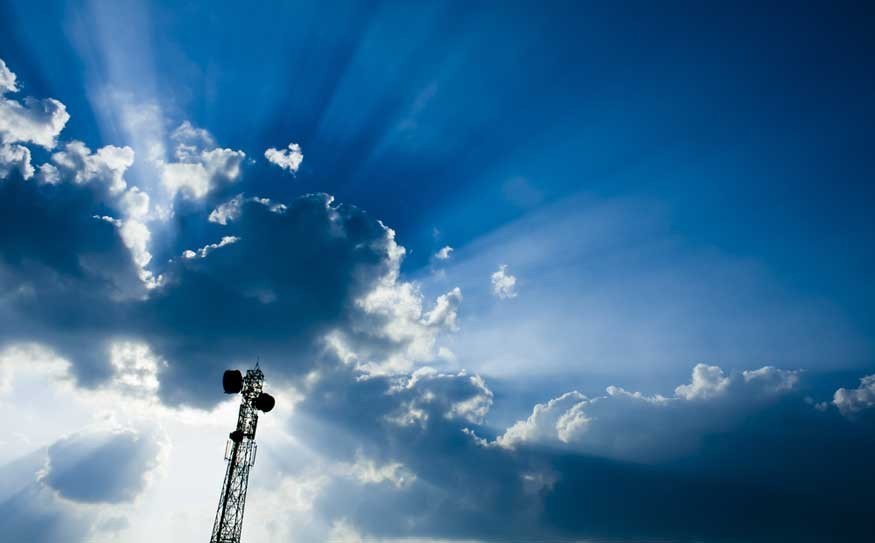There's something to be said for packing up the car and driving out of cell phone range for a few days. I really do think we've become a little too dependent on our gadgets and the instant push-button gratification they provide.
That said, it was quickly apparent that our campsite on Cowichan Lake probably could have used some connectivity. To send a text to friends to give them directions to our out-of-the-way campsite, we had to hop in the car and take a short drive to get a few bars. That's after recharging the phone using the car battery for about 15 minutes until it was usable.
On our last night, one of our party tripped over a rock in the dark and injured her hand. Nothing life threatening, but we didn't have a designated driver in the group and she spent an uncomfortable night with an injured hand that would later require surgery to repair.
Then, en route to our next destination in Tofino, my wife and I became separated from one vehicle because the other driver's cell phone had run out of juice.
Not a big deal in the scheme of things but we were trying to coordinate a meet-up to buy groceries and he didn't have an adapter to charge his phone.
These episodes outlined all the ways we've come to rely on technology, and while there are a lot of negatives to infer from that, there's also no question that tech makes life easier.
There are a few devices that you can use to stay on the grid, even if your reception isn't the best:
Stay charged: Reception doesn't matter much if you don't have any power, but luckily you can solve that by purchasing a solar power charger. You can get these things anywhere, from hardware stores to MEC, but you'll want to pay special attention to the features.
For example, what kind of ports does it offer? Can it charge a laptop battery or AA/AAA batteries?
Does it have its own battery to store power for later?
Is it compact?
Is it durable and weatherproof?
Does it have another power option like a hand crank when it gets dark?
My advice is to evaluate your needs and go from there. You can get devices that will charge your phone for as low as $30, but for high-end systems with battery packs you're looking at $150.
Boost your signal: Given the amount of coverage across North America these days, chances are you're never very far from a cell tower.
A company called Wilson Electronics (www.wilsonelectronics.com) makes a Signalboost MobilePro portable system for $200 that they claim can boost your signal 1200 per cent. For slightly more power they make a cradle system for cars that uses your car battery to boost your signal even more. They're also a lot cheaper, starting at $99, but you need to be in your car.
This is a good option for camping or venturing into areas just off the grid, but in the deep backcountry where mountains get in the way of microwaves you probably need to consider satellite communications technology.
Probably the cheapest satellite option is the Spot Connect (www.findmespot.ca), which works with most smart phones. You need to pay an annual fee of $100, but compared to satellite phones it's a bargain.
Plan ahead and keep it brief: If you're going anywhere that requires maps, don't count on being able to access your devices' map function past a certain point.
Even if you can get a bar on your phone the amount of data required to render your location is significant and your download could be interrupted completely by a dropped or laggy signal. The best option is to map your route in advance and take screen shots that you can call up later and send to others when the reception is good.
The amount of data you send/recieve also impacts your success rate. Dropped calls can happen with poor reception, and the amount of time it takes to send a text from an area with poor service increases your chance of failure. It took about three minutes to send a long text message describing the location of our campsite, versus a few seconds to confirm that they got it.
It's an imperfect science, but when in doubt be brief — the less data you move around, the better. If you need the web, try to view the text-only versions of the site, download the TextOnly app, or view the website in advance to cache some of the data.
If you're using a texting program, check the back end to make sure you're using the most basic settings — most instant messaging apps are stripped down by definition, but some use up data for fonts, graphics, emoticons, etc.
Use only in emergencies: Getting away from it all is the whole point of getting away from it all. Before you go anywhere always set your email and text system to let people know you're on holiday. That way, if you do need your phone for an emergency, you're not sitting there for 20 minutes receiving a bunch of messages you were trying to avoid.




